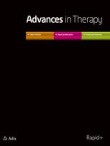
Abstract
Introduction
The objective of this study was to describe the treatment patterns among patients with newly diagnosed multiple myeloma (MM) who had not received autologous stem cell transplantation (ASCT). It further compares the safety and clinical outcomes across different frontline regimens as well as explores whether treatment duration predicts outcomes.
Methods
Patients with MM (> 45 years) who had not received ASCT were retrospectively identified from the US SEER-Medicare (Jan 2007–Dec 2016) and Optum (Jan 2007–Sep 2018) databases. Cox proportional hazard models were used to compare overall survival (OS) among bortezomib + lenalidomide + dexamethasone regimen (VRd), lenalidomide + dexamethasone regimen (Rd), cyclophosphamide + bortezomib + dexamethasone regimen (CyBorD), bortezomib + dexamethasone regimen (Vd), and other bortezomib-containing therapies based on propensity score matching. To address immortal time bias, time-fixed and time-dependent Cox models were employed to estimate the association of longer frontline treatment exposure with outcomes.
Results
Mean (standard deviation; SD) age was 71 (9.8) years; and 49.51% were women. Bortezomib and lenalidomide-based combinations were the most common treatment modalities. After matching, the HR (95% CI) of OS by frontline therapies comparing VRd with Vd was 0.76 (0.66, 0.86), CyBorD was 0.87 (0.75, 1.05), for other bortezomib-based therapies was 0.56 (0.49, 0.64), Rd was 0.83 (0.73, 0.95), and for other therapies was 0.70 (0.61, 0.80). Longer frontline treatment duration was associated with better OS for overall frontline [HR (95% CI) 0.86 (0.82, 0.90)]; Vd [0.81 (0.74, 0.89)]; CyBorD [0.79 (0.64, 0.98)] and Rd [0.86 (0.78, 0.95)].
Conclusion
Results demonstrated that the frontline therapies prescribed to most patients who did not receive ASCT for MM in the United States were consistent with the NCCN guideline recommendations. Longer frontline treatment duration was associated with improved OS.
Δεν υπάρχουν σχόλια:
Δημοσίευση σχολίου